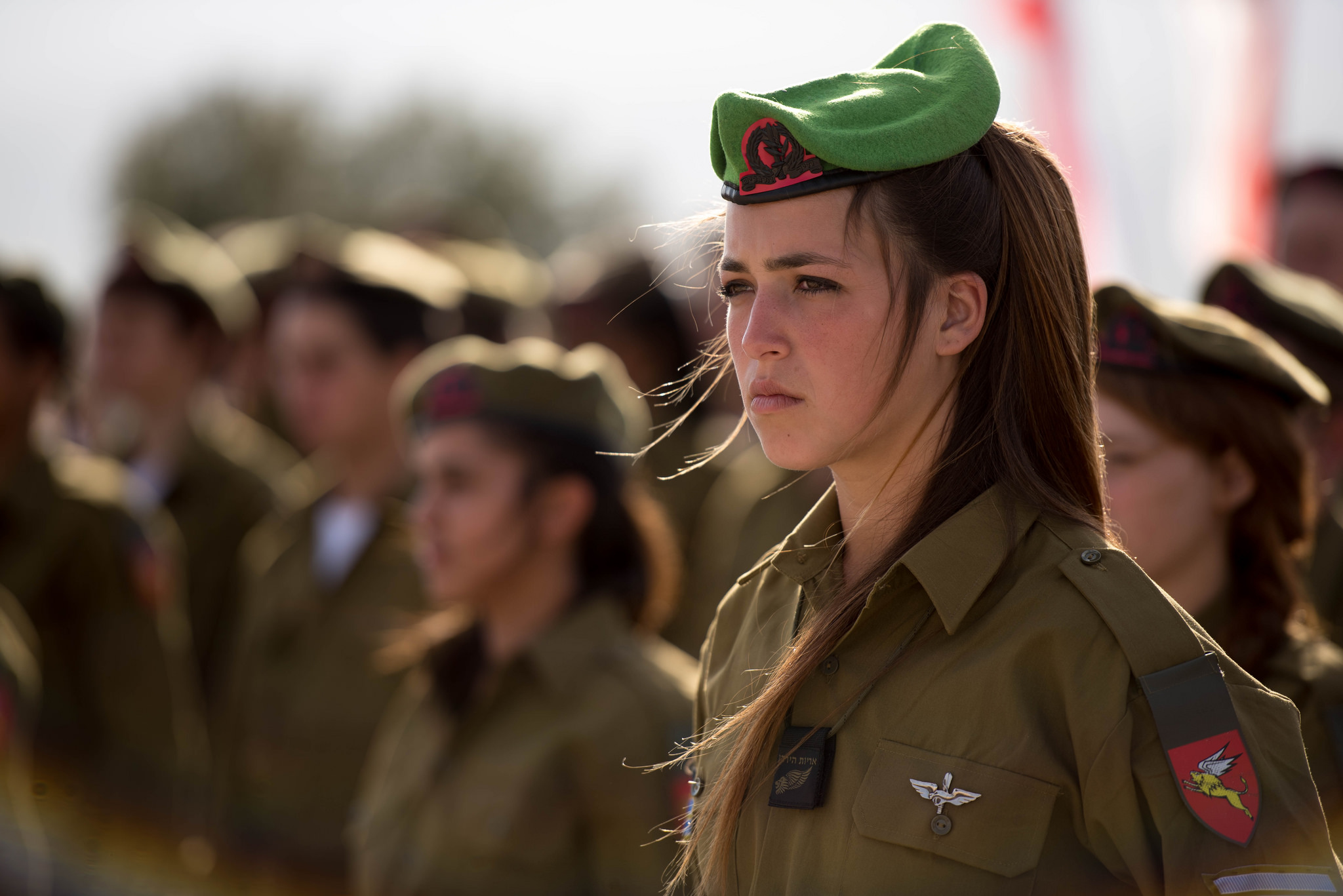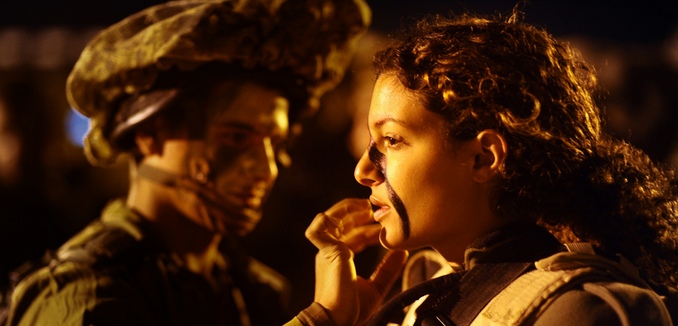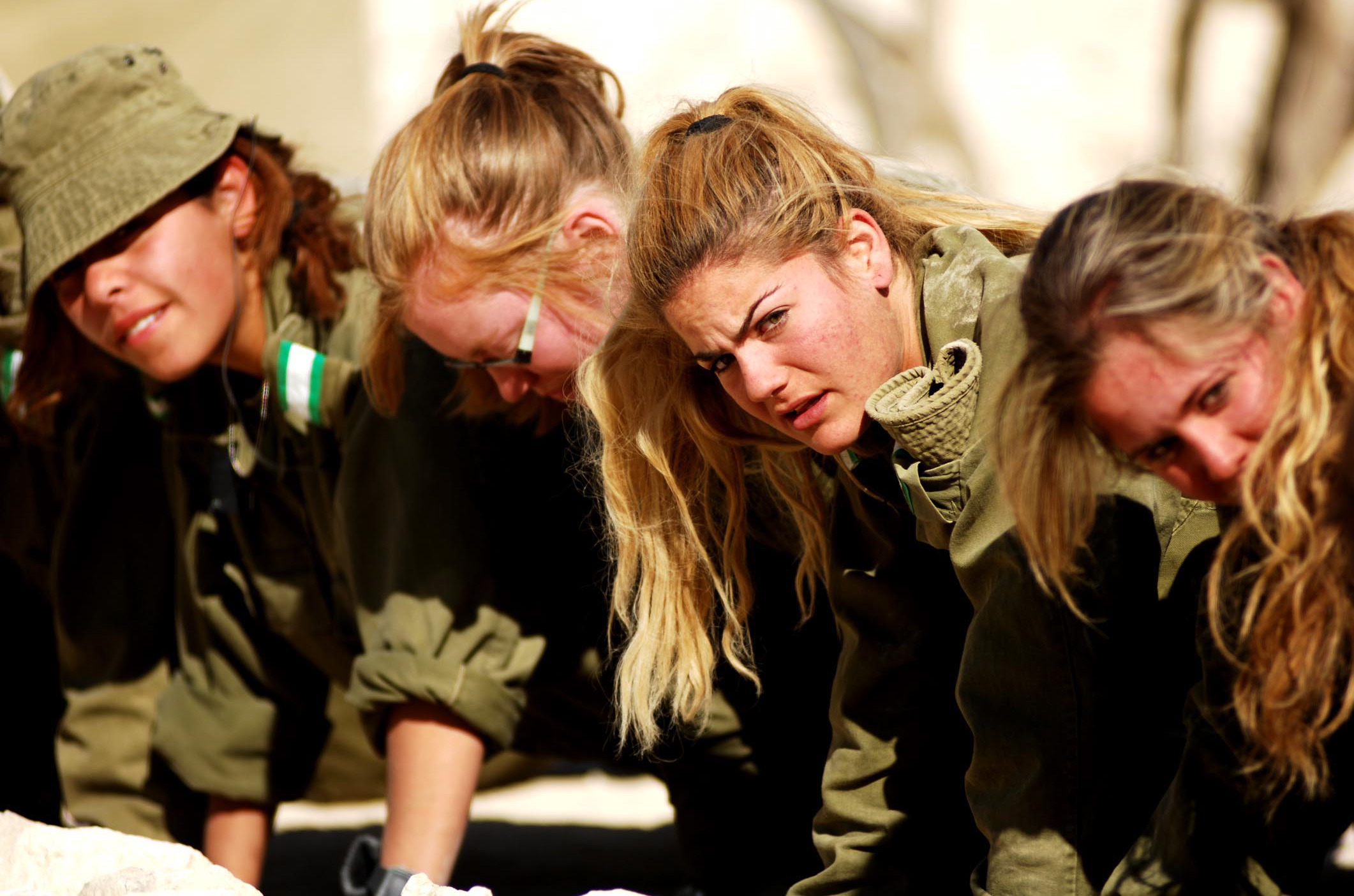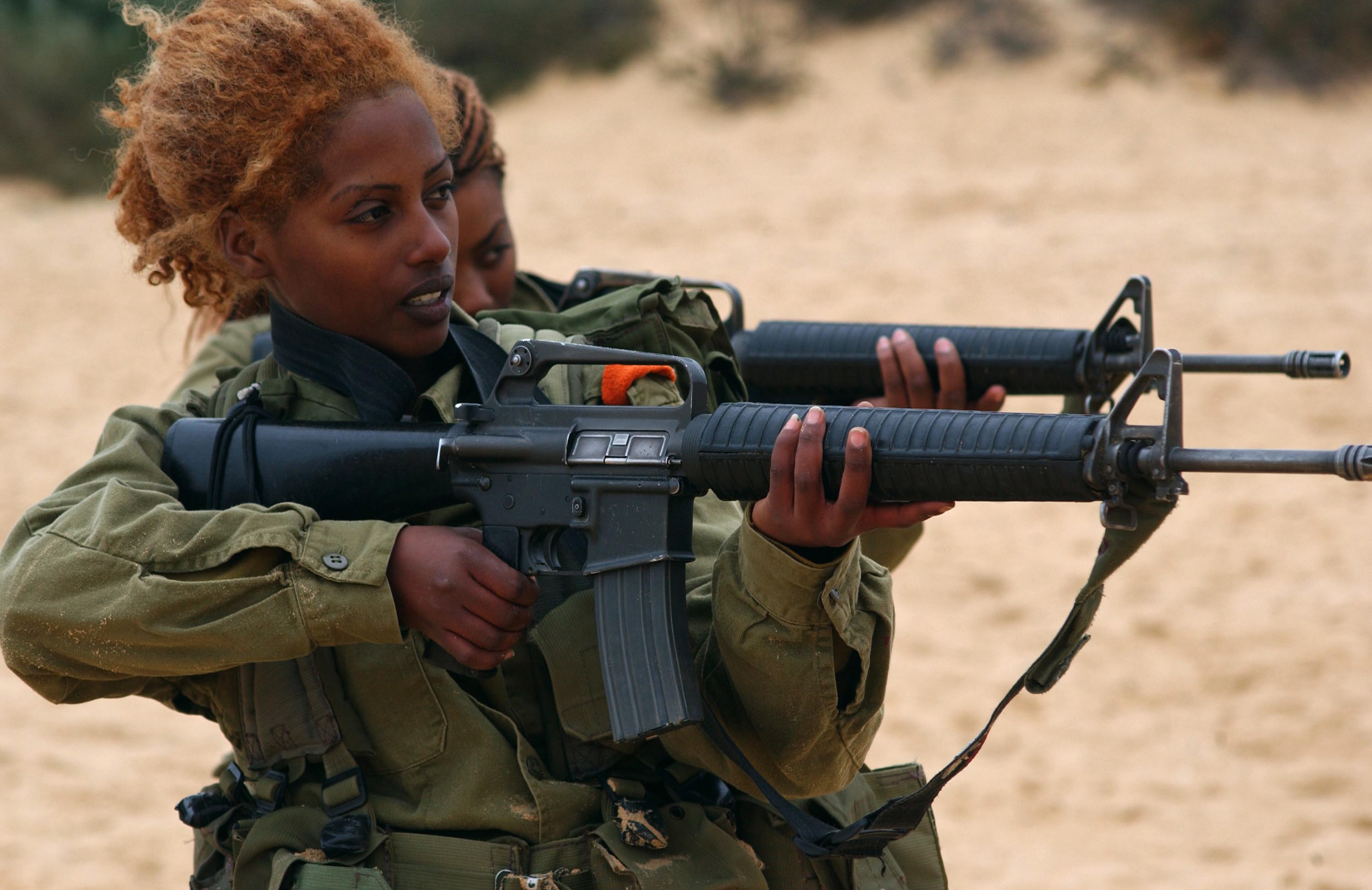The Israeli military is planning to test women’s ability serve in infantry and special forces units, a move that could open new combat positions for female soldiers and have wide-ranging implications on Israeli society, The Wall Street Journal reported Wednesday.
The Israel Defense Forces, which was one of the world’s first militaries to open combat positions to women some 20 years ago, has since made 85 percent of roles available to both sexes. While most women are required to serve in the military for two years, those who volunteer to enlist in combat units must serve for three years, the same length of time mandated for all male soldiers.

Israeli soldiers from the mixed-gender Lions of Jordan battalion during a swearing-in ceremony on February 2015.
Female soldiers can serve in mixed-gender battalions like Caracal, which guards Israel’s southern border with the Sinai Peninsula, as well as in combat positions in the air force, artillery, and intelligence. However, due to the physical requirement of carrying heavy loads for long distances, women have made only limited headway in infantry and special forces units.
Now, the military is looking to test-run women into these positions and is planning to inaugurate a fourth mixed-gender battalion next year.
“If she can do the mission, we don’t care if she has a pony tail or doesn’t have a ponytail,” Lt. Col. Oshrat Bachar, an adviser to military leaders on gender affairs, told the Journal.
At present, some 2,000 women serve in IDF combat roles, which are seen as a springboard to senior military, political, and corporate positions in Israel. Many top Israeli politicians previously served in special forces units, including Prime Minister Benjamin Netanyahu, who served in the elite reconnaissance unit Sayeret Matkal.
“It’s prestigious in Israel to be in a fighting unit,” explained Pnina Sharvit Baruch, a researcher at the Institute for National Security Studies. “It opens up opportunities and women want to be part of that.”
Some critics reject these efforts, including Israeli historian and author Martin van Creveld, who called mixed-gender units “summer camp.” Lt. Col. (res.) Dr. Yuval Heled, head of the Institute for Military Physiology at Tel Hashomer’s Sheba Medical Center, told The Times of Israel in March that positions in infantry and armored brigade units can be too physically demanding for women.
“You need to be at this weight; you need to be able to run such and such a distance at a specific speed; you need to be able to evacuate a wounded soldier to such and such a distance; your muscle power needs to be that,” he said.
This summer, the IDF revealed in its weekly magazine that some 40 percent of women in the Caracal battalion sustained some kind of injury, as did 70 percent of women serving in the Artillery Corps. That is about twice as many injuries as those sustained by male soldiers in the same units.
“The balance here is between, on the one hand, allowing women to serve in the best combat positions that exist, while on the other, fulfilling our primary duty, which is protecting the health of that human being,” Dr. Heled added.
However, others have argued that mixed-gender battalions like Caracal have become critical in monitoring the Sinai, which hosts both smugglers and the ISIS affiliate Sinai Province.
In one 2012 incident, three terrorists from Ansar Beit al-Maqdis (as Sinai Province was previously known) entered Israel and fatally shot one soldier. The terrorists were subsequently stopped by members of Caracal, one of whom was a female soldier.
“We see the potential in women,” Caracal commander Lt. Col. Elad Cohen said. “Why not let them in?”
Maj. Or Ben Yehuda, a member of Caracal who was shot in the head by smugglers in 2014, but continued fighting off the gunmen and called in reinforcements while taking care of a wounded male comrade, today encourages girls to follow her lead. She argued that with the correct equipment, female soldiers can accomplish everything that male soldiers do. “From the second they gave me the gun, helmet and vest and told me run,” she said, “I thought that this is a place that’s going to challenge me.”
[Photo: Israel Defense Forces / Flickr ]






